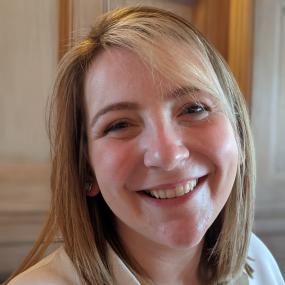Different generations, Different needs

Gilly Fleming is a Consultant in Critical Care in NHS Lothian. She has an interest in medical education and is a part of the the FICM Education Subcomittee.
The bright, outgoing and very competent foundation doctor working with me that day and I were engaging in some chit-chat whilst we waited for the archaic NHS IT system to load.
"Did you have a nice weekend?"
"Yes", I replied enthusiastically "I was at a music festival. We went to see the Chemical brothers" I noted, feeling rather proud of my weekend adventures.
"Eugh", she said looking at me with a slight air of disdain. "Aren't they old?"
And that was the moment, as a mid-30's Consultant, that I first felt completely and absolutely out of touch with my team. Increasingly, although I remain very young in terms of my NHS career, I'm no longer the same generation as the medical students and doctors-in-training I'm working alongside. I found myself wondering how we were different and if I was serving their needs as doctors in training. Did they view me as stuffy and out-of-touch?
I set out to explore and learn a bit more about the intergenerational differences between doctors, so I can best serve my team and colleagues, and by extension, my patients.
As the medical profession continues to evolve, it is increasingly important to understand and embrace the needs of doctors from different generations. Our workforce spans from late baby-boomers to Generation Z, and as the anecdote above demonstrates, there can be an obvious intergenerational gap between clinicans who often work in the same teams. To ensure that everyone’s needs are met, and that doctors are able to provide the best possible care, it is essential to optimise training and education for doctors of all ages. In this blog post, we will explore the different needs of newer generation of doctors, and how they can be addressed in order to create an effective working environment.
Introducing the generations
Today’s healthcare workforce is comprised of a variety of different generations. Each of these generations brings their own set of skills, perspectives, and values to the workplace. It is important to understand these differences in order to effectively engage and work alongside each generation1.
- Baby Boomers (born 1946-1964) are the oldest generation in the workforce today. They are typified for their hard work and loyalty to employers, valuing tradition and hierarchy. They are often motivated by recognition, responsibility, and stability. They tend to prefer in-person interaction and may have difficulty adapting to technology-based learning.
- Generation X (born 1965-1980) is considered the bridge between Baby Boomers and Millennials. They are self-reliant and entrepreneurial, often preferring autonomy at work and being recognized for their accomplishments. They value receiving respect for their experiences.
- Millennials (born 1981-1996) are now the largest generation in the workplace. They are driven by innovation, collaboration, and technology. Millennials value feedback and recognize that their employer is responsible for helping them reach their goals. They are highly adaptable to technology-based learning and prefer hands-on, interactive, and collaborative learning experiences.
- Generation Z (born 1997-2015) are the newest members of the workforce. They are tech-savvy, independent, and have an entrepreneurial spirit. They are driven by purpose, connectivity, and financial security. They have a strong desire for maintenance of work-life balance.
It's clearly important to point out and to understand that not all doctors within a generation will fit perfectly into the characteristics described above – as we’re all aware, there is a spectrum of people in each generation, which is to be celebrated. Every healthcare professional will have their own unique experiences, perspectives and values that shape the kind of healthcare professional that they are.
How can we optimise training and education for emerging generations of doctors?
Training programmes need to adapt to adequately meet the learning and training needs of Gen Z doctors 2. They are typically highly tech-savvy, and their learning preferences are often vastly different from those of their predecessors.
To optimise training and education for Gen Z doctors, teachers and trainers should focus on two components of healthcare education : personalised learning and hybrid learning 2. Personalised learning allows learners to determine what they need to learn, allowing them to engage in a process of self-directed learning. Hybrid learning allows Gen Z doctors to combine elements of traditional teaching methods with technology-based learning tools, enabling them to move at their own pace.
It is also important to remember that Gen Z doctors may prefer experiential learning over more traditional methods 1. By providing hands-on experiences and problem-solving opportunities, Gen Z doctors can quickly develop skills and gain confidence in their abilities. By providing interactive and collaborative learning environments, teachers and trainers can foster the development of strong relationships between Gen Z doctors and their peers.
Finally, teachers and trainers may wish to provide Gen Z doctors access to digital tools that can help them manage their workload and training more effectively. For example, using cloud-based technologies can enable Gen Z doctors to access information more quickly and easily, and can provide them with the ability to quickly communicate with their peers 3.
Understanding the generational differences among doctors can help educators and healthcare leaders adapt their teaching styles to better meet the needs of all generations. By providing multiple methods of teaching and learning, using technology in a way that enhances in-person interactions, and fostering a culture of learning and collaboration, we can create an environment where all generations of doctors can learn and grow together.
References
- Pueschel, A., Johnson, R., & Dhanani, L. (2020). Putting Gen Z first: Educating with a generational mind-set. Industrial and Organizational Psychology, 13(4), 594-598. doi:10.1017/iop.2020.103
- Parker, K, Igielnik, R. (2020). On the cusp of adulthood and facing an uncertain future: What we know about Gen Z so far. Pew Research Center.
- Seemiller, C., & Grace, M. (2016). Generation Z goes to college. Jossey-Bass
